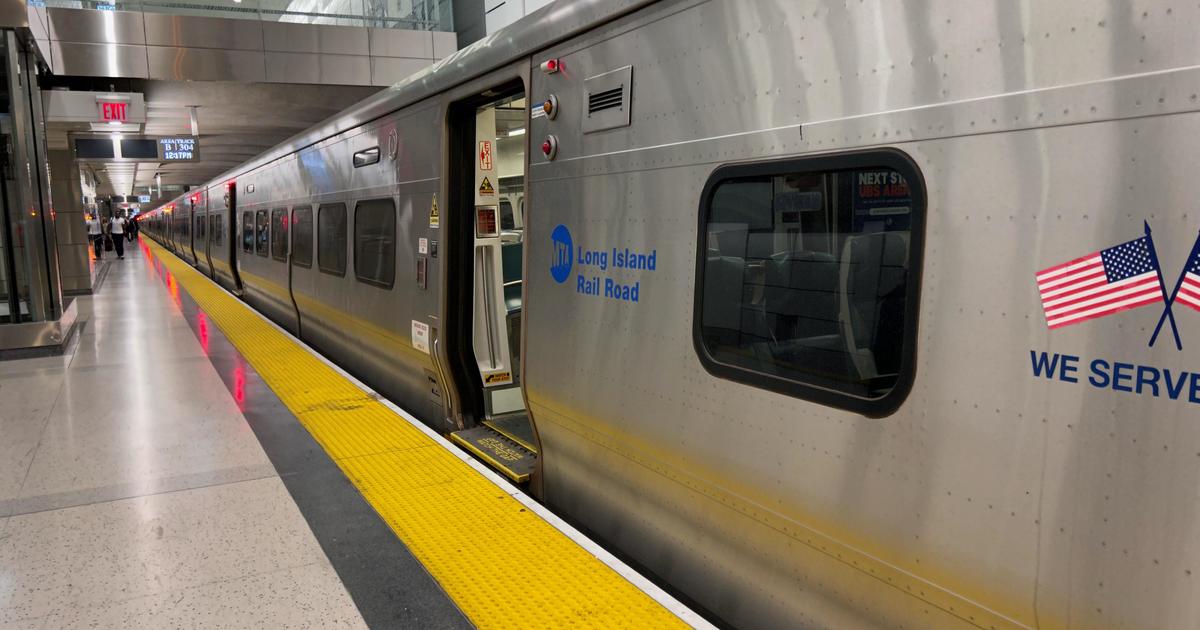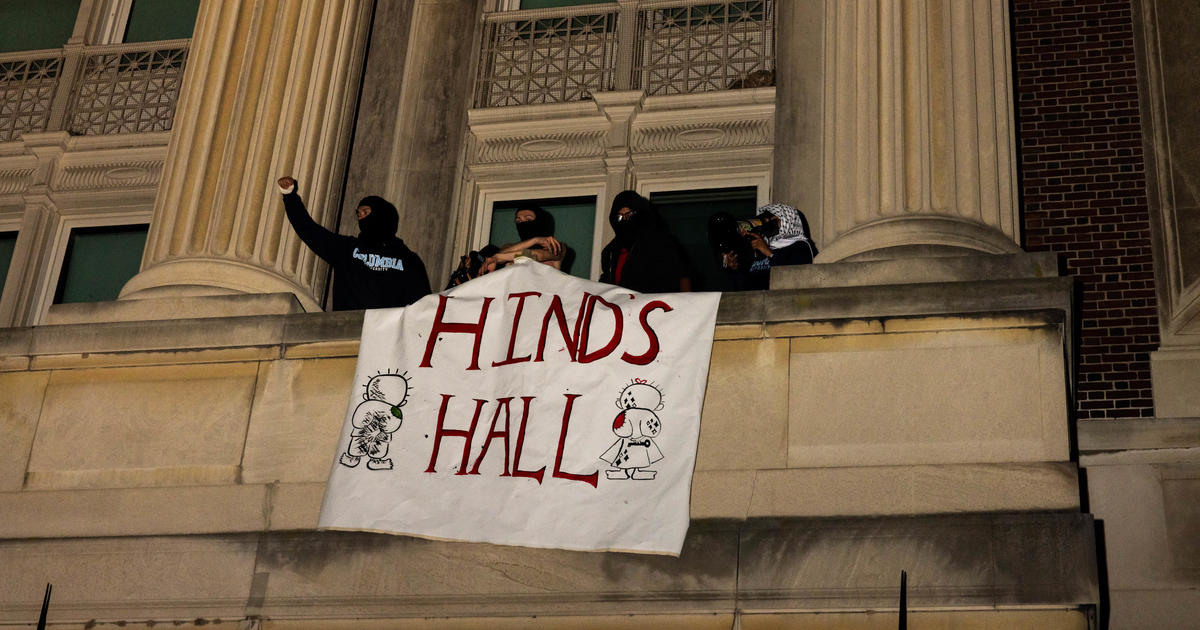Obama: U.S. Won't Send Troops Back Into Combat In Iraq
WASHINGTON (CBSNewYork/AP) -- President Barack Obama said Friday he is weighing a range of options for countering the violent Islamic insurgency in Iraq, but he warned government leaders in Baghdad the U.S. will not take military action unless they move to address deep political troubles.
"We're not going to allow ourselves to be dragged back into a situation in which, while we're there we're keeping a lid on things, and after enormous sacrifices by us, after we're not there, people start acting in ways that are not conducive to the long-term stability and prosperity of the country,'' Obama said from the South Lawn of the White House.
The president did not specify what options he was considering, but he ruled out sending American troops back into combat in Iraq. The last U.S. troops withdrew in 2011 after more than eight years of war. Obama said the U.S. has poured a lot into training and equipping Iraqi forces. American soldiers who fought there can't believe the situation has deteriorated so quickly, CBS 2's Dick Brennan reported.
"We gave them everything they need to be a free country and the toughest pill to swallow is to see this go down in a matter of weeks," said Sgt. Henry Hiller, who served in Iraq in 2007.
Obama: U.S. Won't Send Troops Back Into Combat In Iraq
Administration officials said Obama is considering airstrikes using drones or manned aircraft. Other short-term options include an increase in surveillance and intelligence gathering, including satellite coverage and other monitoring efforts. The U.S. also is likely to increase various forms of aid to Iraq, including funding, training and providing both lethal and non-lethal equipment.
The U.S., which routinely has an array of ships in the region, has the aircraft carrier USS George H.W. Bush and an accompanying Navy cruiser in the northern Arabian Sea, while two Navy destroyers from the Bush strike group have moved into the Persian Gulf.
The ships carry Tomahawk missiles, which could reach Iraq, and the Bush is carrying fighter jets that could also easily get to Iraq.
Obama suggested it could take several days before the administration finalizes its response to the situation on the ground in Iraq.
"We want to make sure we have gathered all the intelligence that is necessary so that if in fact I do direct and order any actions there that they are targeted, they're precise and they're going to have an effect,'' Obama said before leaving for a four-day trip to North Dakota and California.
Officials said the president had no plans to cut his trip short.
The al Qaeda-inspired Islamic State of Iraq and the Levant has quickly overrun Iraq's second-largest city of Mosul, Saddam Hussein's hometown of Tikrit and smaller communities, as well as military and police bases -- often meeting little resistance from state security forces. The militants have vowed to press on to Baghdad.
The fast-moving rebellion, which also draws support from former Saddam-era figures and other disaffected Sunnis, has emerged as the biggest threat to Iraq's stability since the U.S. withdrawal. It has pushed the nation closer to a precipice that could partition it into Sunni, Shiite and Kurdish zones.
Critics were quick to blame President Obama, Brennan reported.
"We could have won this. We sacrificed over 4,000 people. If I sound angry about it, I'm sorry, but I know too many of these people. I've met too many at Walter Reed that have been wounded. We could have solved this conflict. We had it won thanks to the surge and we blew it all. And that's a tragedy," Sen. John McCain (R-Ariz) said.
McCain and others said the problem goes back to when the U.S. failed to intervene in civil war in Syria, where the ISIS terrorists have a stronghold.
"We were out to lunch. We were not doing anything to address a humanitarian and geopolitical crisis in Syria. Now, this is what is known as regional spillover, and boy has it happened and ISIS is now in control of northern and central Iraq," Michael Weiss, a contributor at Politico magazine, told CNN.
Sen. Charles Schumer of New York said the situation in Iraq is "one of the greatest foreign policy problems we're going to face."
"We have done a very good job in Pakistan, we've done a very good job in Yemen and now we're going to have to change the way we operate to make sure that no al Qaeda bases can establish themselves in Syria or Iraq. We have to do that for the safety of America," Schumer told WCBS 880's Rich Lamb. "I think what the U.S. has to focus on is preventing terrorism from occurring on the United States shores."
The Shiite soldiers who deserted en masse because they were unwilling to fight and die for Sunni towns such as Tikrit are much more likely to fight for Baghdad and it's Shiite-dominated national government, U.S. intelligence officials believe. U.S. agencies also assess that the Iraqi units around Baghdad are marginally better.
Obama argued that the insurgency is not only a danger to the Iraqi people, but also to American interests in a volatile region. He also cited America's long investment in Iraq as a rationale for stepping in to help the country from crumbling.
"We have enormous interest there and obviously our troops and the American people and the American taxpayers made huge investments and sacrifices in order to give Iraqis the opportunity to chart a better course, a better opportunity, but ultimately they're going to have to seize it," Obama said.
Secretary of State John Kerry, traveling in London Friday, urged Iraq's neighbors to also understand the gravity of the situation.
"Everybody in the region, every country that understands the importance of stability in the Middle East, needs to be concerned about what is happening with ISIL in Iraq today,'' Kerry said.
The Pentagon has been pulling together a broad range of military options that could be taken in Iraq, and is having discussions with the White House about the best way forward.
One of the immediate moves could be to position small teams of military troops and aircraft close by in case they are needed to evacuate U.S. personnel or to provide security if required.
More aggressive options include airstrikes and other counterterrorism operations against the insurgency, in conjunction with or with the approval of the Iraqi government.
You May Also Be Interested In These Stories:
(TM and © Copyright 2014 CBS Radio Inc. and its relevant subsidiaries. CBS RADIO and EYE Logo TM and Copyright 2014 CBS Broadcasting Inc. Used under license. All Rights Reserved. This material may not be published, broadcast, rewritten, or redistributed. The Associated Press contributed to this report.)



